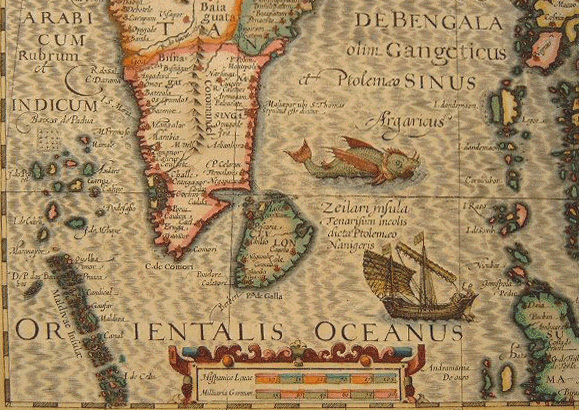This post is in continuation of my post on which History is True Sanskrit or Tamils where thy quote the other as preceding them.
I quoted from Literature and now I am trying to look into some archaeological finds.
The archaeological finds from Attirappakkam northeast of Chennai evidences the existence of Tamils about a million years ago!
“The prehistoric period during which Lower Paleolithic settlements existed in the Tamil Nadu region has been estimated to span the period from about 1,510,000 BCE[1] until around 3000 BCE.[2] For most part of the lower Paleolithic stage, humans lived close to river valleys with sparse forest cover or in grassland environments. The population density was very low and so far only two localities of this lower Palaeolithic culture have been found insouth India. One of these is in Attirampakkam valley in the northwest of Chennai in Tamil Nadu.[3] Archaeological research has uncovered evidence of fossil remains of animals and primitive stone implements around the northern Tamil Nadu that could be dated to belong to around 3000,000 BCE.[citation needed]Humans in South India, belonging to the species of Homo erectus, lived in this primitive ‘old stone age’ (Palaeolithic) for quite a long time, using only crude implements such as hand axes and choppers and subsisting as hunter-gatherers“(wiki)
The Tamil History based on this, Tamil Literature,Sanskrit Literature and Arikkamedu findings,Puducherry is between 15,000 BCE to 10,000 BCE.
Such an old civilization quotes Sanskrit and Vedic Literature .
But we are dating the Vedas around 5000 BC.
If the Sangam period , Muthal Sangam, at 500 BC is true, how is it that the Purana, which are earlier by at least by 4000 years, quote Tamils, Tamil Kings?
Anachronism?
As I pointed out in my earlier post, Sanskrit and The Vedas quote Tamil.
So the History of India may need revision in dating taking into account the Tamil and History together and not studying them in isolation.
The problem is compounded by the fact the references to Tamil Poets,Sanskrit Poets,Rishis,even Gods’ names do not seem to be Real.
They are nom de plumes.
We find the poets and Scholars, Rishis seem to have existed at various points of time.
Viswamitra is not one man, the name means ‘friend of the World”
he seems to have existed during Ramayana, Mahabharata periods.
Take for instance even God, Hanuman>
He is reported to have existed both during Ramayana and Mahabharata periods.
Same with Vasisha, his name meaning ‘one who is very austere and one who follows discipline’
The list in Sanskrit is endless.
In Tamil Sage Agasthya appears in many places ,transcending time.
Avvaiyaar,has the same distinction.
And take the instance of Tirukkural which is dated about 2000BC.
Now there is no unanimity about the persona of Thiruvalluvar.
His name is linked with a man of a Community , called Valluvar
And the name of the Community is Valluvar.
The thoughts presented in the Thirukkuaral encompasses Jain and Buddhist thoughts which came later!
If you look at the Bhagavad Gita, one would find that it contains Buddhist and Jain Thoughts when Buddhism and Jainism were not even born!
There is this point in Indian Philosophy which states that Time is Cyclic and that events happen and keep on happening in a Cycle ao that at any given point time, nothing seems to precede other for one who can Perceive.
Then you have Viswamitra banishing his offspring to Dravida Desa and their successor Apasthamba organizes Vedas for those South of Vindhyas.
But we find Tamil literature quotes Mahabharata to the period before Vuswamitra sent his sons to South.
But to confound you Tamils are mentioned in the Ramayana!
And you have the concept of Siddhas in Tamil.
The Siddhas are reported to be transcending time.
One of the great Philosophical treatises in Ttamil, Thirumandiram is written by Thirumoolar, a Siddha whose time is not accurately calculated( definitely before SecondTamil Sangam) and his thoughts are Adi Shankara’s Advaita.
Shankara dates around mid 14 Century at the latest?
How come his thoughts, more or less the same, in Tirumandiram?
The Archaeological reference throw more confusion in dating Tamil and Sanskrit in that each quoting the other as preceding them, but How?

No comments:
Post a Comment